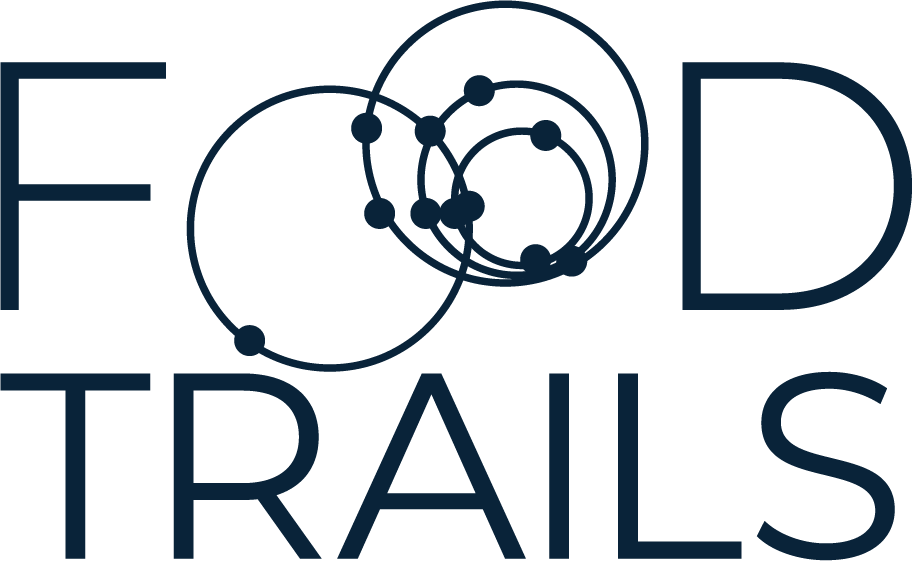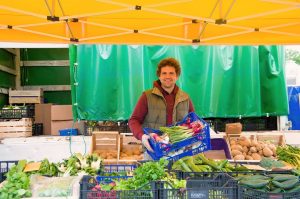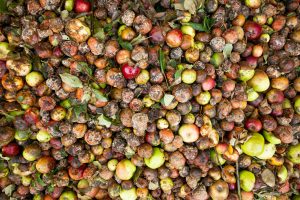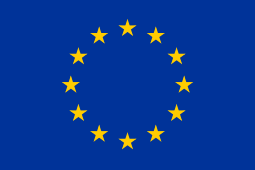On 9 May, 2023, the most innovative European food-tech startups and SMEs gathered in Milan to participate in the Food Trails Matchmaking Day and meet partner cities and potential investors. The event aimed to facilitate strategic collaborations between the private and public sectors, fostering the transformation of European sustainable food systems.
The Matchmaking Day, organised in collaboration with Food Trails’ strategic partner Cariplo Factory, was part of the Mid-Year 3 Partner Meeting and of the first Food Forum of the city of Milan.
The event featured a significant panel discussion on Impact financing, focusing on frameworks and solutions for investing in urban food policies.
Presentations of startups and SMEs
One of the primary challenges of the 11 Food Trails Living Labs is to provide solutions to specific public challenges related to food systems transformation.
In November 2022, Food Trails launched the Sustainable Food Systems Call For Solutions to identify innovative private partners, particularly startups and SMEs, that could assist the project cities in achieving their goals in seven specific areas of challenge. The Call received 200 applications from across Europe, out of which only 23 were selected.
During the Matchmaking Day, the 23 finalists had the opportunity to present their solutions to cities and investors through pitch sessions and one-to-one meetings.
The panel on “Impact financing for urban food policies”
The discussion on impact financing commenced with the opening remarks from Anna Scavuzzo, Vice Mayor of the city of Milan, and Valentina Amorese of Fondazione Cariplo.
The Vice Mayor highlighted the importance of the Matchmaking Day for the city of Milan: “We want to invest in the future and promote good relationships between public policies and private activities, both profit and non-profit. Your effort today will help reshape instruments, ideas and turn them into new policies for the future”.
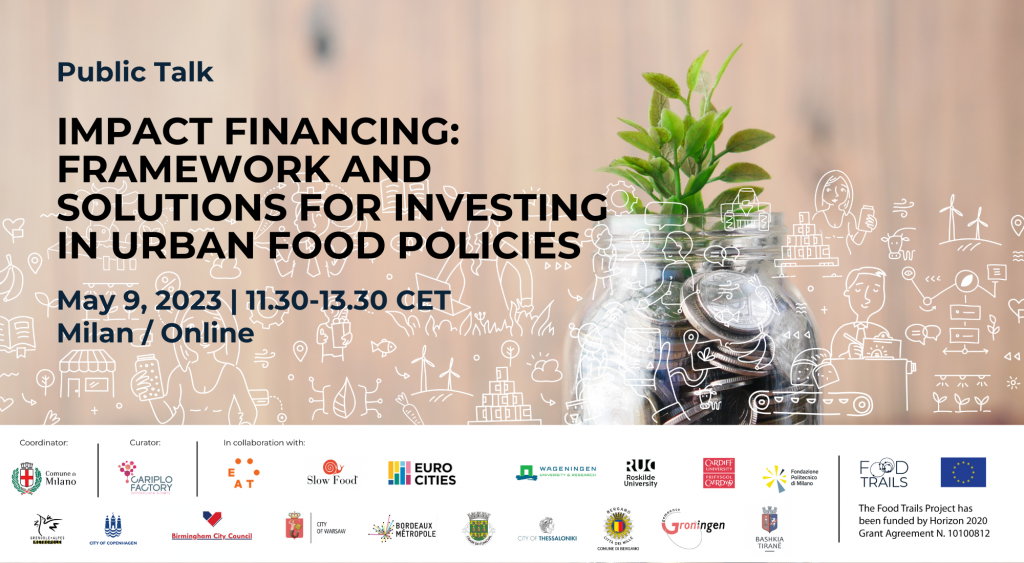
The first part of the panel was dedicated to discussion on how do cities invest in the food system. One of Food Trails’ aims is to connect cities committed to food system transformation with impact investors, exploring opportunities arising from the development of food policies in urban contexts.
- Joe Robertson, from EAT Foundation, presented the experience of the Food Trails Impact Investors Living Lab, which involved a one-year consultation process with five Food Trails cities, innovators, financial actors, and impact investors. Through monthly meetings, the lab addressed various themes related to impact investing in urban food systems, culminating in the report Roadmap for scaling impact investment in urban food systems.
- Thom Achterbosh, from Wageningen Economic Research, presented some observations from the Investors Lab experience, particularly the fact that there is a mismatch of capital not reaching cities despite investors’ interest. He emphasized the need for greater awareness in cities about investment instruments and opportunities, the potential benefits for start-ups and SMEs in implementing public challenges more efficiently than municipalities, and the importance of establishing a common language, such as the “Theory of Change,” to facilitate effective communication between cities, innovators, and investors.
- Lina Guglielmino, from Cariplo Factory, presented the process that led to the Matchmaking Day, which involved collecting data on Food Trails cities‘ needs and holding alignment workshops to identify the real solutions to their problems, using a design thinking tool called “Open Innovation Trees”. This process identified seven main public challenges that cities needed to address for sustainable food system transformation: education and training, communication and engagement, food waste management and reduction, and distribution. Startups and SMEs were invited to present innovative solutions to these challenges.
- Andrea Magarini, Director of the Milan Food Policy Area, City of Milan, explained the strategies that enabled the city to significantly increase its budget over the years.
The involvement of venture capitalists and institutional investors, such as the Cariplo Foundation, played a crucial role in initiating the food policy and providing resources for its growth.
Milan employed three key tools: 1) grantmaking for pilot and high-risk investments, 2) partnerships for co-responsibility in food policy actions, and 3) allocation of municipal budgets towards more ambitious and innovative goals. The city invested in food system infrastructure and public food services, and it is now exploring impact investing as a new frontier in financing urban food policies. (More information can be found in the Policy Brief “Budgeting Urban Food Policies“:
‘
The second part of the panel explored impact financing solutions by examining the experience of the city of Milan, which has implemented a successful food policy and is pioneering impact investing.
- Lorenzo Facco, from Deloitte Italia, presented the “Sustainability Linked Bond Food Waste” developed together with the Milan Food Policy Unit. It all started with The Earth Shot Prize, where Deloitte supported the application process, and Milan had been awarded for the “Food Waste Hub” project. Determined to support the city in making a significant impact on its territory and community, Deloitte assisted Milan in assessing the feasibility of issuing a sustainability linked bond. The financing obtained through such Bond will allow the city to achieve a twofold result: improve and strengthen its currently food waste related initiatives; and explore new opportunities around the whole food waste value chain.
- Giulia Bartezzaghi from the Food Sustainability Lab of Politecnico di Milano, discussed the importance of data monitoring for food waste reduction policies. Accurate data and measurable KPIs are essential for framing urban food strategies and mobilizing resources. However, there are challenges in obtaining comprehensive and systematic data on urban food waste, which remains a critical issue for local governments. Bartezzaghi concluded by illustrating the case history of the “Neighborhood Hubs Against Food Waste Monitoring System”
Conclusions
We thank all the startups, SMEs, panelists and guests for joining us and look forward to seeing the results of the new experimental public/private partnerships.
It has been an innovative and exciting process to scout among 200 startup pitches.
We believe in the power of collaboration especially between entities that usually not collaborate together such as profit and nonprofit, municipalities and startups and SMEs.
The personalized approach of the Call For Solutions – Sustainable Food Systems and Matchmaking Day makes them replicable in other municipalities across Europe and beyond, as it enables the discovery of valuable startups for the benefit of citizens and food systems.
